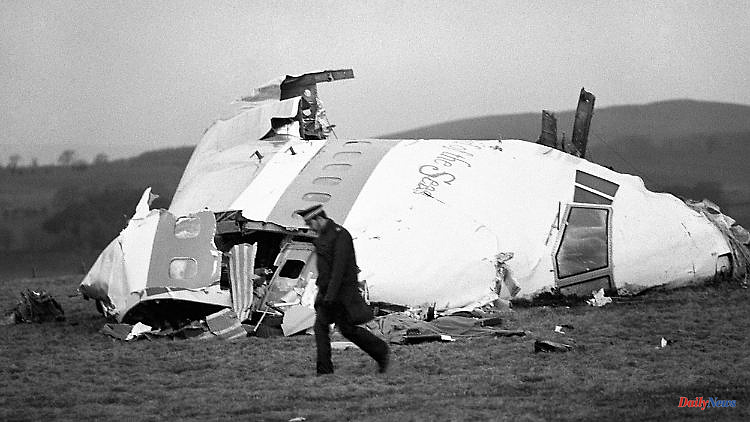270 people died in 1988 when a bomb exploded on board an airplane over the small Scottish town of Lockerbie. The US and Scotland are targeting a Libyan ex-secret agent as the perpetrator. 34 years after the fact, he is facing a US judge for the first time.
The Libyan ex-secret agent Abu Agila Mohammed Masud, who is said to have built the bomb for the Lockerbie attack in 1988, has been brought to the USA. He was treated there for identification purposes and was to be brought before a federal judge in the capital Washington during the day, according to the US Department of Justice.
Scottish prosecutors announced on Sunday that Masud was in US custody. The former Libyan secret agent is said to have been one of the most important bomb manufacturers of the former ruler Muammar al-Gaddafi.
The circumstances under which Masud was taken into custody by the USA initially remained unclear. When charges were brought against him in the United States two years ago, he was in custody in Libya for his alleged involvement in the attack on the Berlin nightclub "La Belle" in 1986, in which two US soldiers and a Turkish woman were killed were killed.
Masud has been under investigation in the USA and Scotland for years because of the Lockerbie attack. The ex-agent is said to have built the bomb for the attack on a US passenger plane that killed 270 people 34 years ago. The Pan Am airliner was en route from London to New York on December 21, 1988 when it exploded over the small Scottish town of Lockerbie 38 minutes after take-off. 190 US citizens were among the dead.
So far, only one person has been convicted of the Lockerbie attack: in 2001, former Libyan intelligence officer Abdelbaset Mohamed al-Megrahi received a long prison sentence, but was released from a Scottish prison in 2009 on medical grounds and died in 2012 in the Libyan capital, Tripoli. He maintained his innocence until his death.












